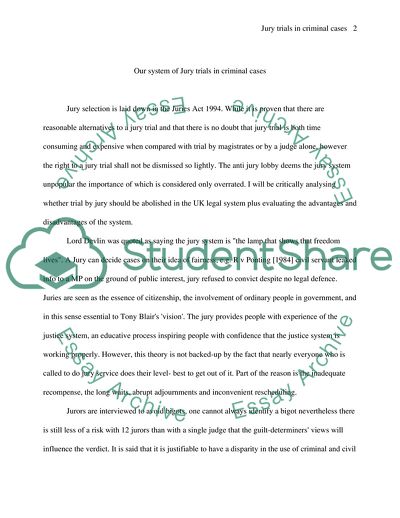Cite this document
(The System of Jury Trials in Criminal Cases Essay, n.d.)
The System of Jury Trials in Criminal Cases Essay. https://studentshare.org/law/1707057-assess-the-arguments-for-and-against-dispensing-with-our-system-of-jury-trials-in-criminals-cases
The System of Jury Trials in Criminal Cases Essay. https://studentshare.org/law/1707057-assess-the-arguments-for-and-against-dispensing-with-our-system-of-jury-trials-in-criminals-cases
(The System of Jury Trials in Criminal Cases Essay)
The System of Jury Trials in Criminal Cases Essay. https://studentshare.org/law/1707057-assess-the-arguments-for-and-against-dispensing-with-our-system-of-jury-trials-in-criminals-cases.
The System of Jury Trials in Criminal Cases Essay. https://studentshare.org/law/1707057-assess-the-arguments-for-and-against-dispensing-with-our-system-of-jury-trials-in-criminals-cases.
“The System of Jury Trials in Criminal Cases Essay”. https://studentshare.org/law/1707057-assess-the-arguments-for-and-against-dispensing-with-our-system-of-jury-trials-in-criminals-cases.


